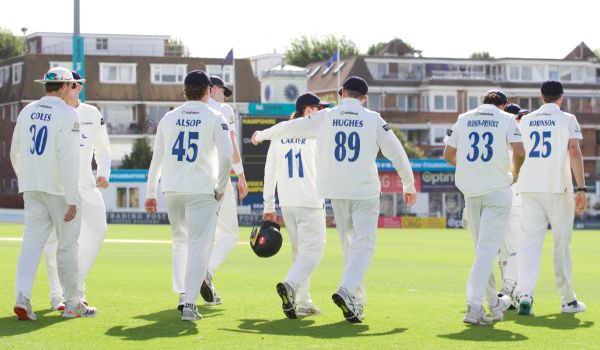Elite sport, psychology and me: Laurie Evans' journey from release to recognition
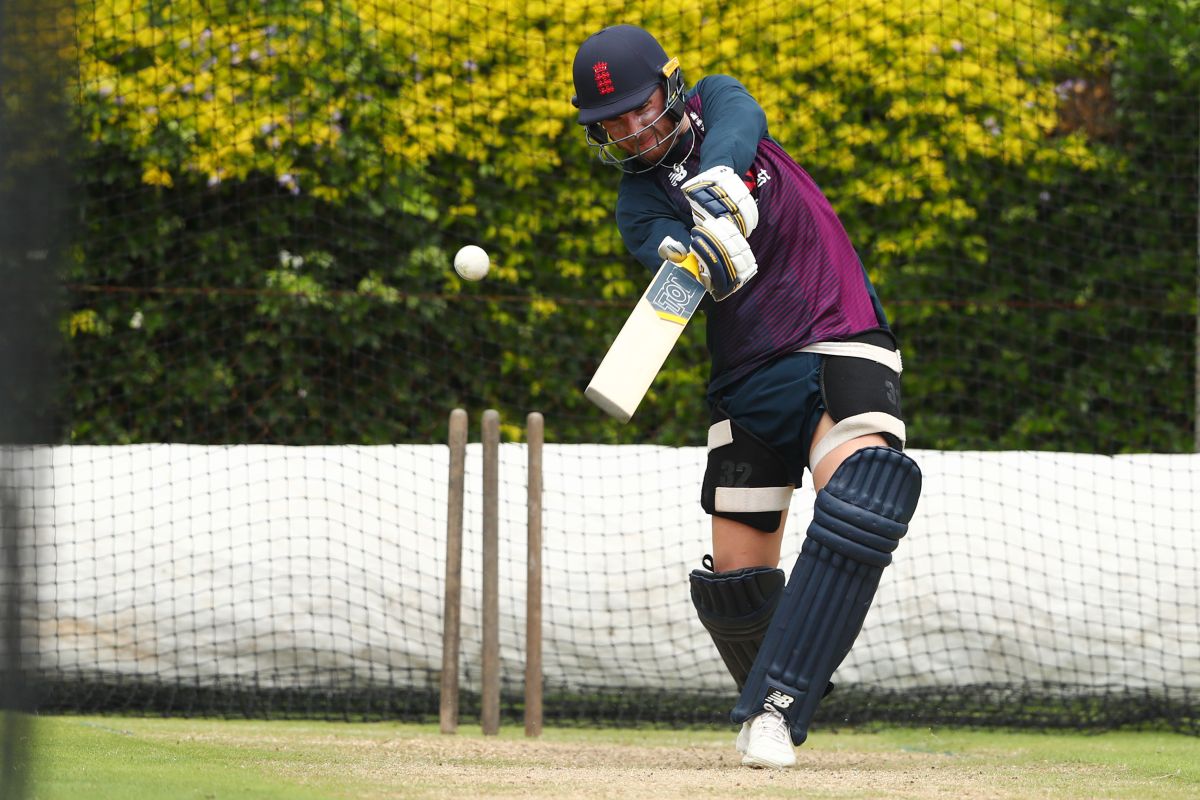
Over what should have been our scheduled 2020 Vitality Blast campaign, 1st Central are putting the Sharks in the spotlight. This week, it's the turn of our batsmen.
Laurie Evans is back in training with England's 55-man summer squad, having forged a reputation as one of the domestic game's finest white-ball batsmen. Here, he opens up to The Cricketer's Nick Friend on his own mental battles and a fascination with elite sport's psyche...
Laurie Evans has launched a podcast. It is an idea that first came to him when he started on the franchise circuit, a journey that began with a stint in the Afghanistan Premier League and has since taken him to the equivalent competitions of the Caribbean, Bangladesh and Pakistan.
Surrounded in hotel rooms by some of the world’s top players, it seemed too good an opportunity to miss – a chance to pick brains, absorb information and talk cricket.
And when lockdown came, it provided him with the motivation and spare time to put his thoughts into action: The Inside Half was born. Luke Wright and Carlos Brathwaite have both guested, as well as Olympic medallists Sam Murray and Greg Searle.
Each episode has been different and intriguing, but with a common theme running through all four. Evans’ parents are both psychoanalysts and through his own experiences – good and bad, he has learnt the value and importance of mental wellbeing.
He is speaking now at an intriguing time: selected in England’s 55-man training squad on the back of a steep rise as a white-ball run-scorer since 2018, while also in the final year of his contract at Sussex, keen to stay at a club he adores but conscious also of the present uncertainty.
Whichever way the summer goes, it is a situation he believes he is better equipped to face than ever before. Of his international call-up, he says: “I’m in as good a place as I can be for what’s about to happen. If this was five years ago, I don’t know if I’d have been in the right place to be able to deal with if it doesn’t go well.”
He recalls his release from Surrey a decade ago now, a time he describes as “the toughest in my career – not only cricket-wise, but also as a human being”.
“It really tested me and threw a lot of challenges in my way,” he expands. “As a young man, I had to come through that. We’ve always been taught to talk things through. Obviously, my parents thought that I needed some help. They didn’t think I was depressed at all, but they felt like I was certainly in a bad place and I needed some help. That was the start of it.
“As I’ve got older and more resilient and stronger, it has helped me get to where I am now really, from being released. I’m very proud of what I’ve done to date. I know my strength of character – inside and out. More recently, the mental side of the game has been more about how I want to play the game, so I’ve had some help in that area from someone to try to unleash my talent, if you like. It’s always been a talking point and in more recent years, talking about mental health and stuff like that has become more apparent.”
And so, to the premise behind the podcast and, in particular, the notion of success. It is a subject matter that fascinates Evans. Perhaps in sport, nothing is deemed as sacred as a gold medal – an endpoint and a raison d’être for many Olympians.
“I just felt like there were really interesting stories to hear about individuals,” he explains. “On the face of things, they might have won Olympic medals or world titles and we’ve all read interviews about how great it is, but I found that the really interesting stuff is when things have gone wrong and how they get through that.”
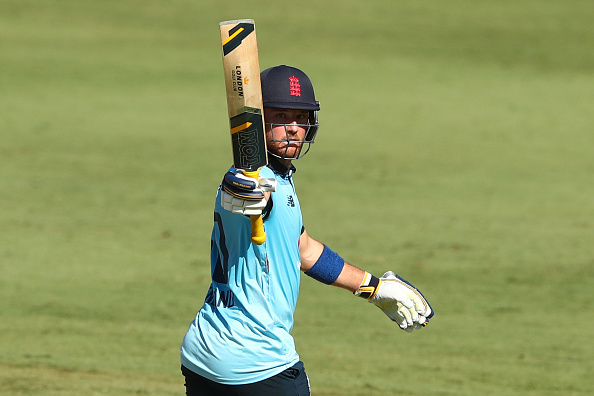
He points to Searle, his uncle, a rower who won gold at the 1992 Games in Barcelona as a 20-year-old in the coxed pairs – “an amazing thing to go through at that age,” says Evans. Matthew Tait is another he mentions – the former rugby player who became England’s second-youngest post-war debutant in 2005 but struggled to make an impact in his first appearance.
And then there is Brathwaite, Evans’ captain with St Kitts and Nevis Patriots, who achieved global fame in the 2016 World T20 final against England in only his eighth T20I. “Remember the name,” exclaimed Ian Bishop as the allrounder hit a fourth successive six to clinch West Indies their global crown.
“I remember talking to him about it over a beer in the CPL,” Evans explains. “He’s admitted that his cricket career has been very hit-and-miss. I just said: ‘Was that one of the best and worst things that ever happened to you?’
“If someone achieves something that they’re not quite ready for, it can really cripple you. Fortunately, I think a lot of guys who achieve something at a young age are ready. With Greg, how did you get back into training after winning gold when you’ve done what you set out to do?
“For me, it’s always been about playing for England. I suppose that’s what drives me every day. I guess you’ve always got to set yourself another goal if that happens. You then want to be a great England player, or that sort of thing. These are things that I’m just really interested to hear about. And hearing it from another sport is great as well.”
It brings him to the present day. Evans is back in training, an invitation he received through a phone call from Mo Bobat, the ECB’s performance director, whom he came to know through his maiden Lions tour over the winter. He made scores of 94, 11 and 24 in the three white-ball games he played as part of a landmark, unbeaten trip and he admits that he “would have been disappointed if I hadn’t got in”, once it was revealed that England would be selecting an enlarged group for the summer.
He knows, too, however, that this opportunity is likely a direct consequence of this period’s exceptional circumstances. Breaking into a World Cup-winning one-day outfit has proven an insurmountable challenge for several fine white-ball domestic players – Evans included, who in a different era might have enjoyed far greater international exposure.
“You do have to be realistic sometimes, be honest with yourself and say: ‘Do you know what, I’m probably not going to get in that side unless there’s an injury,’” he reflects. “But you want to play the best cricket you can. You don’t want to give up on stuff. I just made sure I kept going. I probably thought it was never going to happen, which maybe relaxed me and allowed me to go and enjoy my cricket and win titles.
“I wouldn’t say I completely lost hope, but you always wonder whether it’s going to happen. But if you look over the last couple of years, there probably haven’t been many better one-day batters in the country. I felt like it maybe could have happened a year earlier, but there are so many good players. And even then, I’m only really talking about maybe going with the Lions a bit earlier. But I’m not bitter about it. I’m just really appreciative for the opportunity.
“I was really proud to be called up to the Lions but at the same time, I’d been longing for a bit of recognition from England for such a long time. And then, all of a sudden you get it. I didn’t want that to be my World Cup, if you like. I didn’t want that to be my be-all-and-end-all. I wanted to go again. I had to make sure I accepted it for what it was but also not to let it overcome me.
“It’s the same with being selected in the 55. I want to now be selected in whatever they narrow it down to. I’ve definitely got my feet on the ground. I’ve been through enough in my career to realise my emotions. But I think people underestimate how determined I am and how competitive I am, certainly when it comes to winning games of cricket and performing under pressure. I think people underestimate how difficult it can be to play in different parts of the world and in new environments. It certainly does test your character in all senses.”
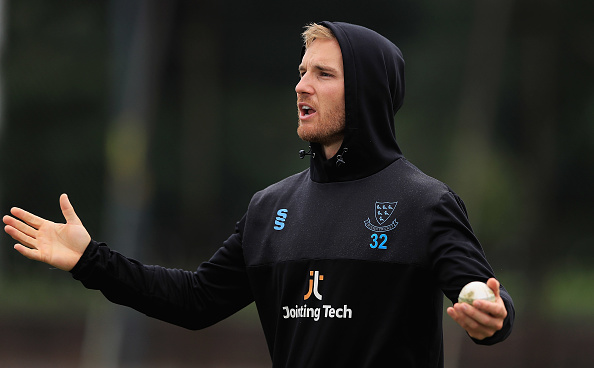
It is no coincidence, he believes, that his game has improved both with age and with circumstance. That same childhood dream of representing his country remains his aspiration. Unlike those he has quizzed as a podcast host, he is still working towards his personal pinnacle.
Evans has reached a good place in his life and he talks with an admirable honesty about the development of his psyche that has led him to this stage. He links his successful stint with England Lions to the “amazing mindset” that followed the birth of his son Josh in January.
“Even though he wouldn’t have a clue, I was just desperate to be a good role model for him,” he adds. “I do think all these things come into it. It’s not just about your talent – it’s about how you handle everything else: how you handle the media, how you handle people talking negatively about you and not letting that affect you.
“But saying that, someone like Joe Root is just an exceptionally gifted person to have been able to handle all of that from when he made his debut. You get guys like that – Chris Woakes was the same when I first joined Warwickshire. He just had it mentally – solid, didn’t let it affect him, constantly looking at the process of getting better. I think I was completely the opposite as a 20-year-old.
“Cricket is not necessarily about the ability or the talent, it’s all about the mind. I’m convinced of that. Alastair Cook, someone like that, is just a brilliant example of determination and mindset. I’m sure many a talented cricketer has wasted it and not had the mindset. It’s definitely a mental game – in all senses of the word.”
Evans has long been tuned into the complexities of the mind, having spent his childhood with two parents for whom it was their study and professional field.
Access to such expertise has been of benefit for the most part, but he thinks too that his background has unwittingly encouraged him at times to overanalyse his own game.
“Growing up, my parents were amazing: they’d drive me anywhere,” he recalls. “They were the people who dropped me off at every coaching session or whatever it was. There were tough times because sometimes they could obviously see that something was wrong, but they’re my parents.
“Sometimes, we’d argue and I’d say: ‘Just be my parents, don’t be my psychoanalysts’ – that sort of thing. It was all a learning curve as we were going along – they’d never been in that position before either, but they’re highly skilled in what they do. They’re both in the papers regularly at the minute. They’re doing an amazing thing.
“I’ve played with cricketers and they don’t think about it at all, which makes them even more dangerous. You might find that they do something stupid and you wonder why they’ve done it, but that’s the game you play. You accept their amazing bits and their flaws all in one because they don’t overthink it. Sometimes, I’ve felt like I overthink it. So, yes, I’m in tune with my mind, but I also sometimes feel like that hurts me a little bit because sometimes I do just feel that you’re best off letting it flow and not worrying about it so much and backing yourself.
“I’m in a much better place than I used to be. I was a very emotional young man, but again I sometimes feel like I miss that little bit of aggression. It’s a balance.”
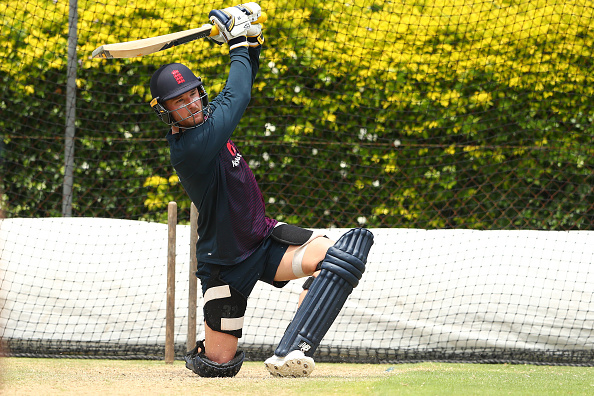
Of the 96 players to get picked up in last year’s draft for The Hundred – an evening in October that now feels as if it took place in another decade, Evans was the 92nd name out of the hat. Wright, his long-term colleague at Sussex, was the last – or Mr Irrelevant, as is the title bestowed in the NFL. The pair have scored 10,848 T20 runs between them, making their belated selections somewhat surprising.
Since the beginning of 2018, just 11 men worldwide have accrued more runs in the format than Evans. Among those ahead of him sit Brendon McCullum, Chris Gayle and AB de Villiers. Only three – Rilee Rossouw, Colin Ingram and Jos Buttler – are younger.
Age interests Evans, not only because of where he now finds himself – in his first England squad as a 32-year-old, six years beyond the average ending of a professional cricket career, but also because of the misconception that comes with it.
Reflecting on a similar topic, Ravi Bopara told The Cricketer last year that he saw T20 as “an old man’s game”.
Evans, a new teammate of the former Essex allrounder at Hove, references that quote unprompted as one that resonates with his own development.
It is why his treatment in The Hundred frustrated him. “Me and Wrighty talked about it,” he says. “We felt like it hurt us a little bit in the draft. We play in a team full of young and exciting cricketers, but that doesn’t necessarily win you the game.
“You need your senior players to anchor it all. Wrighty, definitely in the last few years, has been more cautious in trying to build an innings rather than doing what he used to do, which was devastating – going out there and whacking it. You just feel like that’s your role as a senior player in a team.
“Strike-rates do get affected and that’s where we felt like it might have cost us in The Hundred draft a little bit, but I certainly feel that as you get older you read the game better and you know what you can do and can’t do. Your risk assessment is just dialled in a lot better.”
It is also true, however, that Evans’ own game has benefited immensely from the changes he has made in recent years. One of his major reasons for leaving Warwickshire to join Sussex was the opportunity to bat higher. He reckoned that pitting himself in the finisher’s category limited his chances of further recognition.
He averaged 30.66 and scored his runs at 147.59 in the role when Birmingham Bears won the T20 Blast in 2014 but knew that Jos Buttler was taking the position to new heights.
“If I’d stayed at Warwickshire and stayed at five or six, I don’t know if I’d be in this position,” he adds. “Sometimes, you have to push yourself. I was quite comfortable there but sometimes you have to push the boat out and I felt like it was that time.”
His reward now is the knowledge that he is on England’s radar, comfortable and confident in himself whether or not the opportunity arises in the coming months.
Save 30% when you subscribe to The Cricketer’s print & digital bundle. £35 for 12 issues



